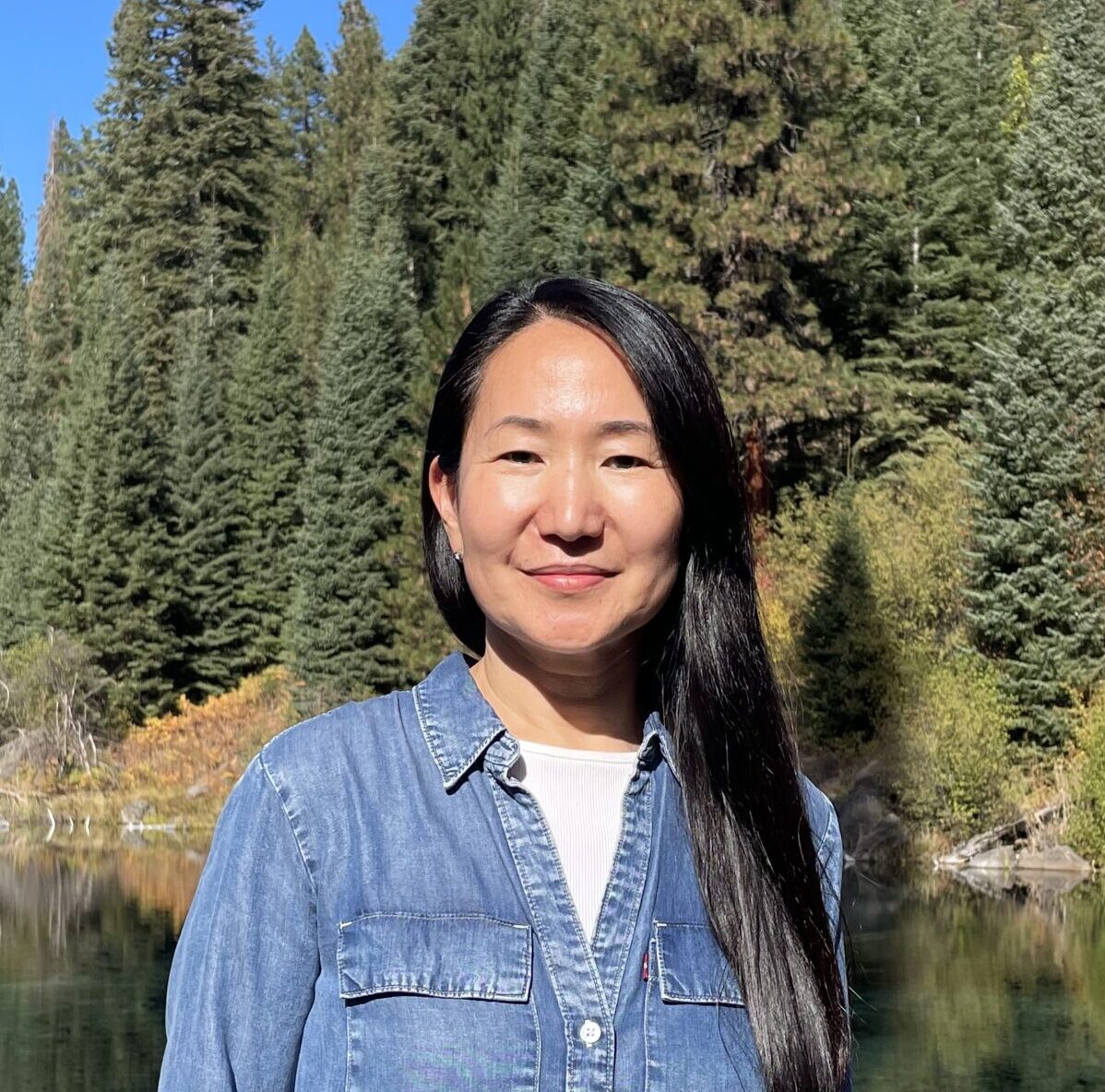Wild Salmon Center’s new Senior Mongolia Consultant is building momentum to protect wild fish—including the world’s largest salmonid—across her nation.
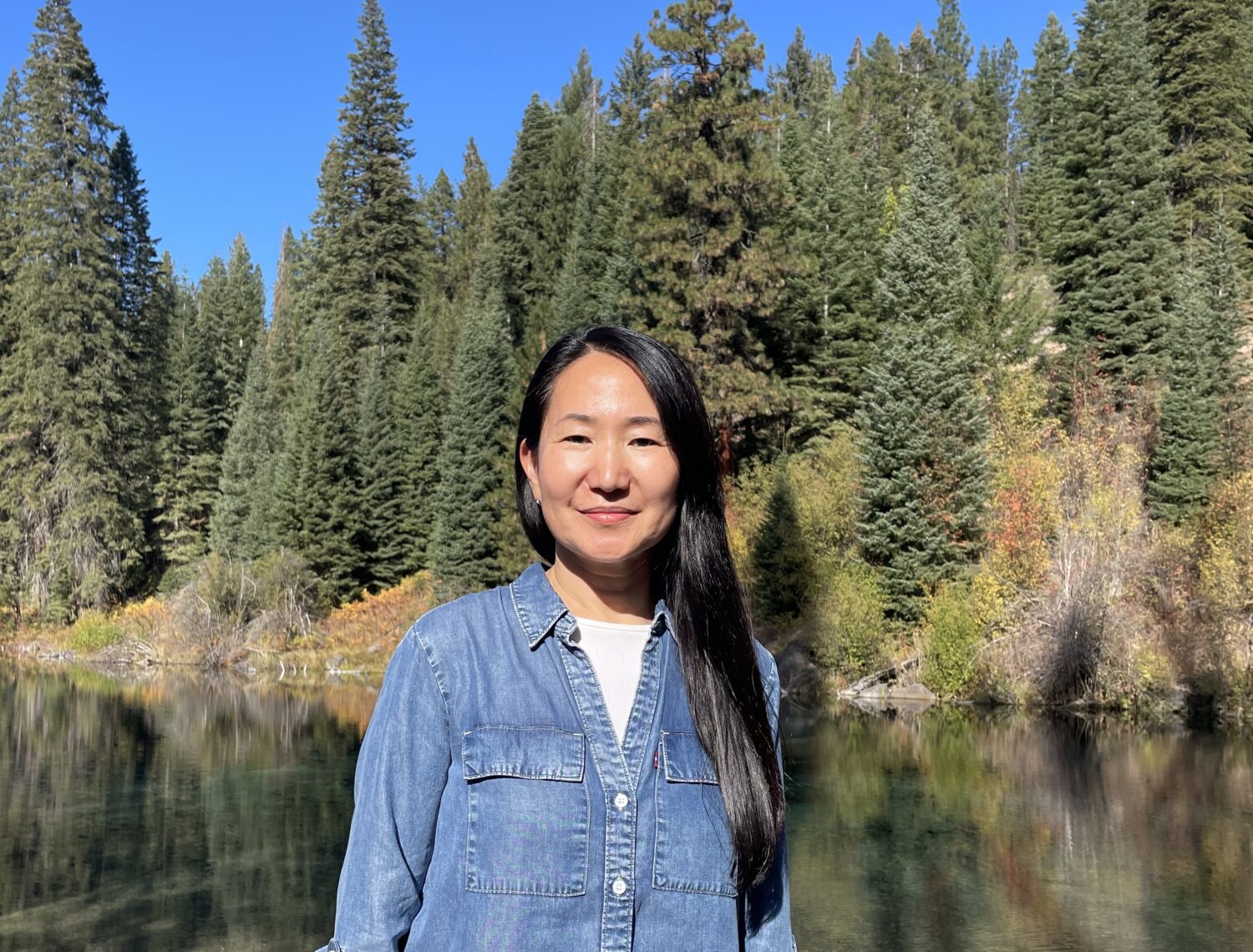
Dr. Saulyegul Avlyush was nearly 13 years old when she received her current first name, Saulyegul, replacing Tuyatsetseg, the Mongolian name she’d been given at birth. Her parents, members of Mongolia’s ethnic Kazakh minority, had relocated the family to Ulaanbaatar to secure an urban education for their children. In Mongolia’s capital city, where Kazakh heritage was more rare, Dr. Avlyush’s parents wanted their children to draw strength from their roots.
“It was a new name, new city, new school,” says Dr. Avlyush.
Today, she recognizes that this time offered early lessons in adapting to change—even embracing it. When her dream of becoming a medical doctor faltered, she pivoted to teaching. Then, near the conclusion of her undergraduate education, her path forked again. Dr. Avlyush adapted—we’d even say thrived.
Today, Wild Salmon Center’s new Senior Mongolia Consultant reflects on the path that’s taken her to remote rivers like the Üür, Kharaa, and Delgermurun—and to an unexpected career as an ecologist, biologist, and researcher focused on aquatic species like Siberian taimen.
“I never planned it, but I’m really happy with my life,” she says. “This work has been the door to a larger world.”
Below, we talk with Dr. Avlyush about detours, role models, and the historic meeting that she hopes will help shape Mongolia’s freshwater story for years to come.
This work has been the door to a larger world.
Wild Salmon Center Senior Mongolia Consultant Dr. Saulyegul Avlyush
Wild Salmon Center: You started your professional life planning to teach secondary school. How did you instead become a world-traveling research scientist?
Dr. Saulyegul Avlyush: In 2003, I’d graduated from university with a thesis in microbiology. I was looking for positions as a biology teacher, at my parents’ suggestion. Time was running out. Mongolian schools all start in the beginning of September, and I hadn’t received any offers.
Maybe a week before the school term started, a professor called to tell me about some German scientists who were travelling to an area in Northern Mongolia known for gold mining. They were going for one week to do freshwater ecology training in the Yerüü River. My professor said, this would be good training for you. So I packed my sleeping bag, my backpack, and I went to this area for the first time. It was wild, and green, and for the first time I met foreign people. I was so shy! I would only tell them my name. But it was an amazing week. I changed course completely. I wanted to be a scientist.
I packed my sleeping bag, my backpack, and I went to this area for the first time. It was wild and green. I changed course completely. I wanted to be a scientist.
Wild Salmon Center Senior Mongolia Consultant Dr. Saulyegul Avlyush
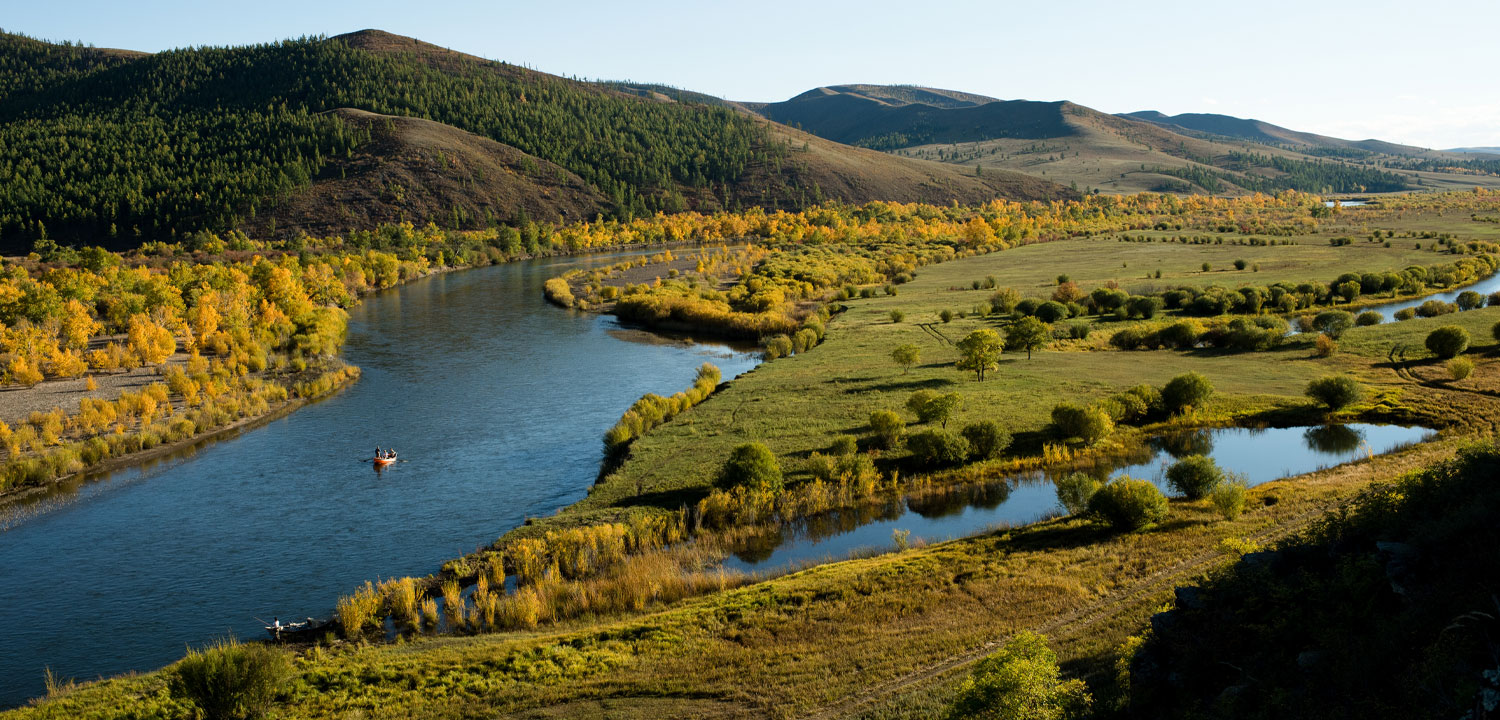
Back in Ulaanbaatar, I started looking for positions with the Institute of Geoecology [part of the Mongolia Academy of Sciences]. I asked for an appointment with the director. I was so young, without any experience, and there weren’t any positions. For two months, I kept showing up to try to meet with him, and he never had time. By the end, though, his secretary knew me so well, and ultimately I got the meeting. He gave me a chance to work as a junior water researcher in the Land Division, and then one month later I got a position in freshwater ecology.
What was it about freshwater ecology that called to you so strongly?
In part, it’s the pristine places this work takes me to. And it’s also the people. This work is a door to the world. Over the years, I’ve met so many scientists from across the world.
One is Dr. Bud Mendsaikhan [of the Institute of Geoecology and Geography]. Dr. Mendee was a role model for me. Early on, I was working in the hydrochemistry lab, and she took me on my first professional field training, to a lake in March—when it’s freezing. We arrived so early in the morning. Dr. Mendee had just one backpack and a cup of tea, and by 6 a.m. she was working. Such energy, this lady! There were two gers [traditional portable Mongolian dwellings] by this lake, and one was full of Chinese fishermen. They were catching fish, and Dr. Mendee started measuring the fish lengths, their weights. She had this amazing memory. I remember how she walked, how she communicated with these fishermen. I wanted to be just like her.
It’s the pristine places this work takes me to. And it’s also the people. Over the years, I’ve met so many scientists from across the world.
Wild Salmon Center Senior Mongolia Consultant Dr. Saulyegul Avlyush
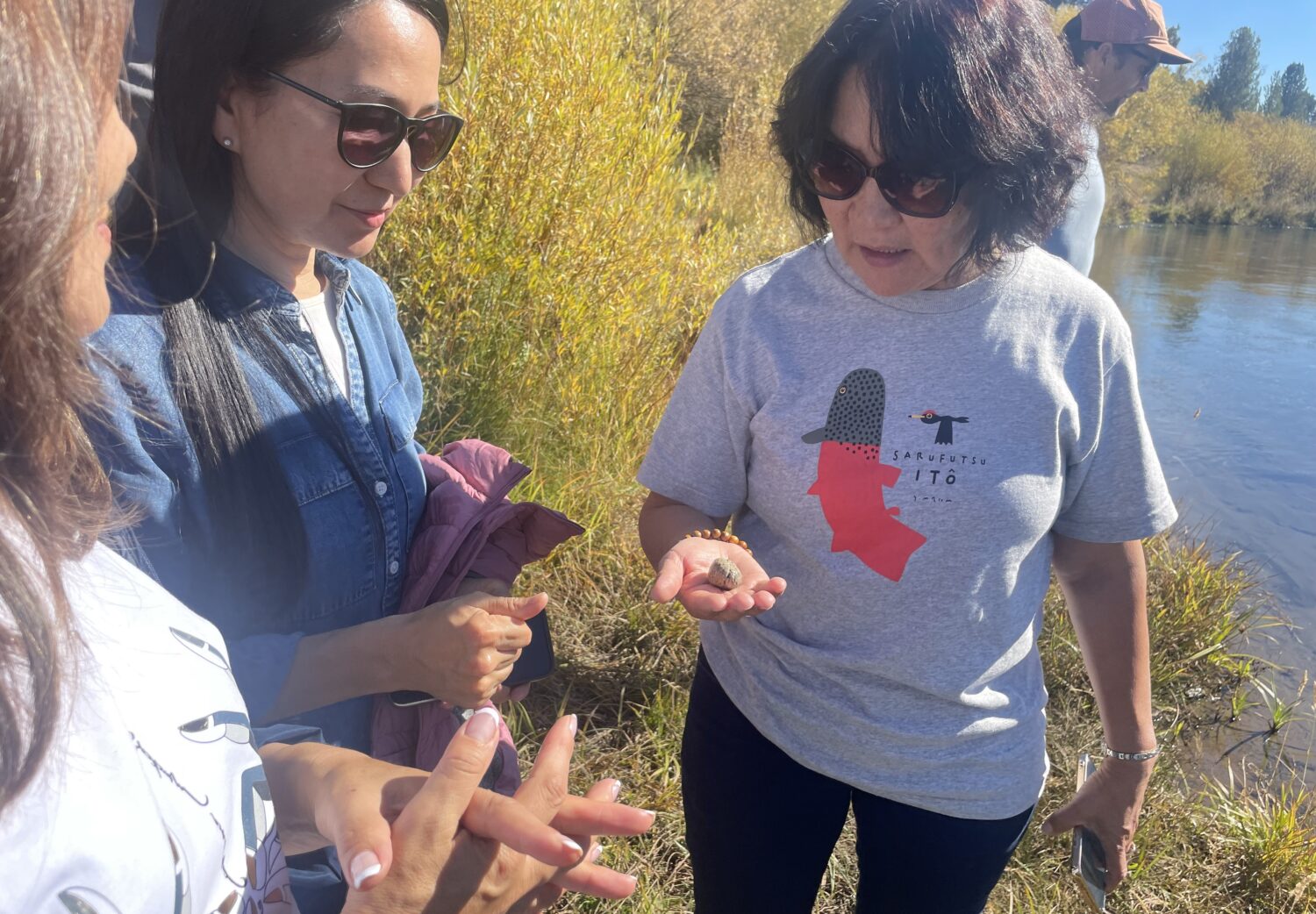
Freshwater ecology helps you see how we impact the land and water. In one place I visited in Northern Mongolia, it was so pristine, but just 20 kilometers away there was a gold mine. We could see that the impacts of both that and livestock overgrazing were reaching this river system. We have so many megaprojects now that our scientific work has become very important.
In one place I visited in Northern Mongolia, we could see the impacts of both mining and livestock overgrazing. We have so many megaprojects now that our scientific work has become very important.
Wild Salmon Center Senior Mongolia Consultant Dr. Saulyegul Avlyush
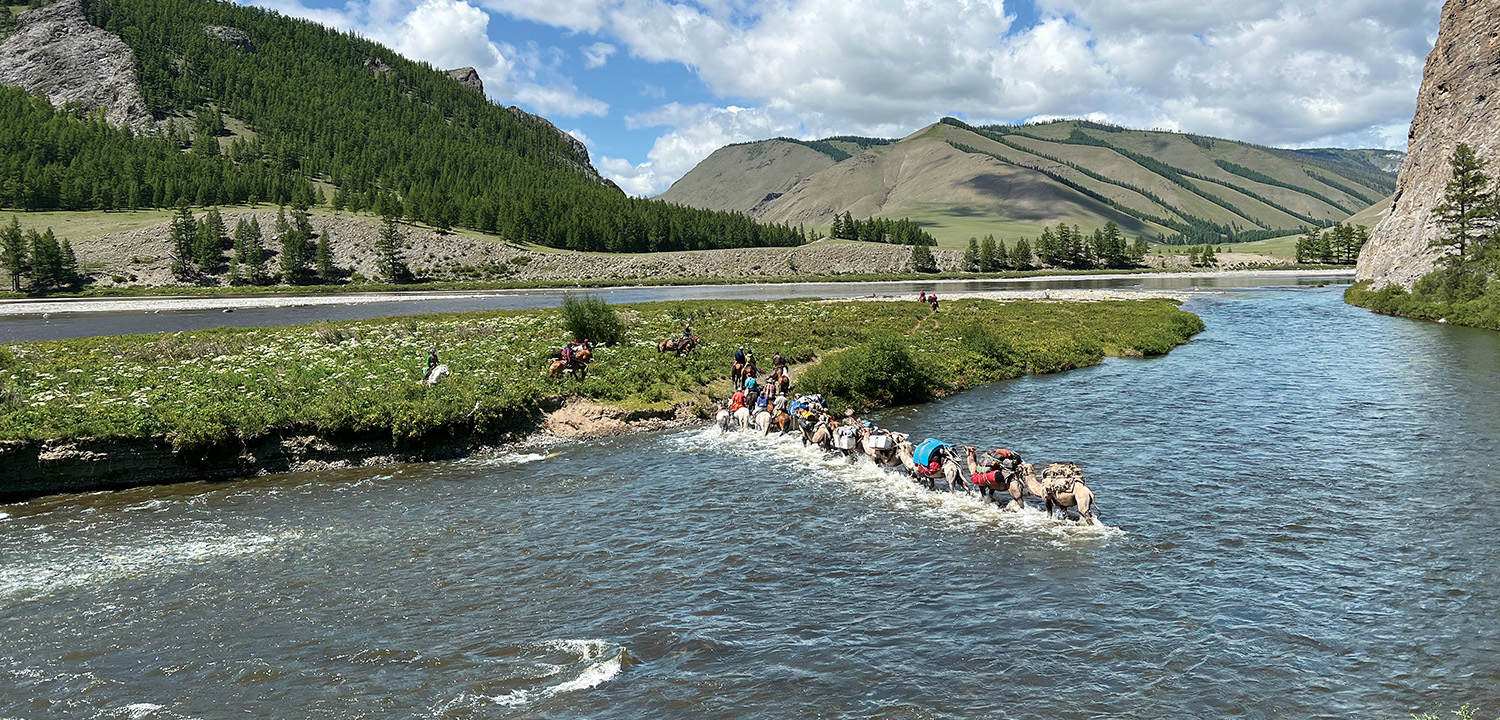
Where has your career taken you since those early days?
In addition to continuing my career at the Institute of Geoecology and Geography, I’ve worked at the Helmholtz Centre for Environmental Research (UFZ), and I was part of the 2030 Water Resources Group hosted by the World Bank and Millennium Challenge Account in Mongolia. I’ve worked with German and Australian scientists on taimen migration and movement, as well as on heavy metal exposure and contamination among fish fauna.
Why did you join the Wild Salmon Center team? How can an international group help advance wild fish conservation in Mongolia?
Freshwater ecology is kind of a missing field of study in Mongolia. There is Dr. Mendee and a few other leading researchers at Mongolian Academy of Sciences. The Institute of Biology [also part of the Mongolian Academy of Sciences] has a Hydrobiology and Ichthyology Laboratory and perhaps five or six scientists. And not a lot of international organizations are here that specialize in working with fish.
But Wild Salmon Center has 30 years of experience already doing this in Russia and in North America. So when I learned that WSC was looking to help build a team here, I thought, this is a good opportunity for me.
Freshwater ecology is kind of a missing field of study in Mongolia. Not a lot of international organizations are here that specialize in working with fish. But Wild Salmon Center has 30 years of experience doing this in Russia and in North America.
Wild Salmon Center Senior Mongolia Consultant Dr. Saulyegul Avlyush
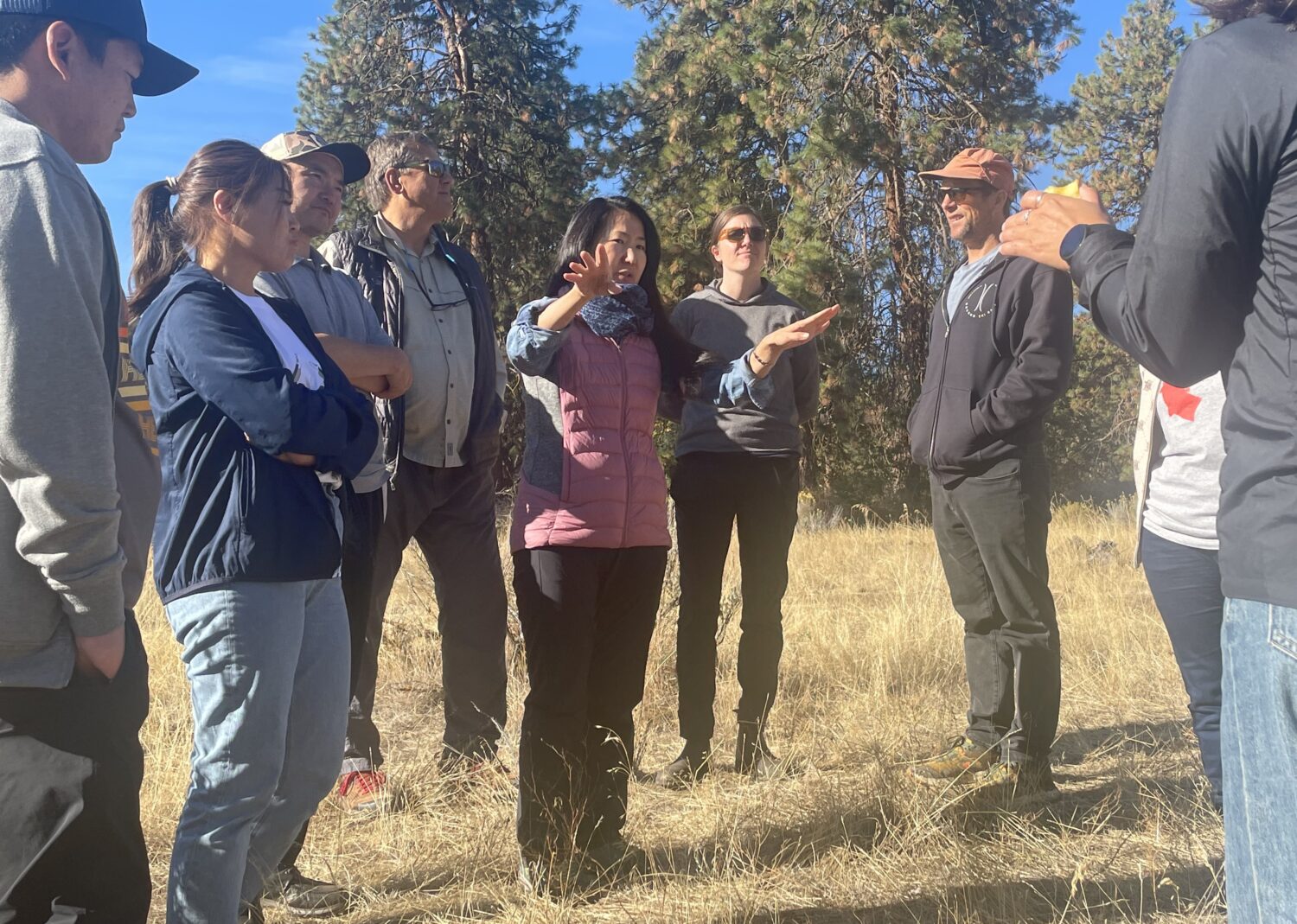
Wild Salmon Center has a long term vision for conservation, and the capacity to help build local leadership. Both are very important here. It also has the International Taimen Initiative, which is bringing even more scientific expertise and knowledge exchange to Mongolia.
Wild Salmon Center has a long term vision for conservation, and the capacity to help build local leadership. Both are very important here.
Wild Salmon Center Senior Mongolia Consultant Dr. Saulyegul Avlyush
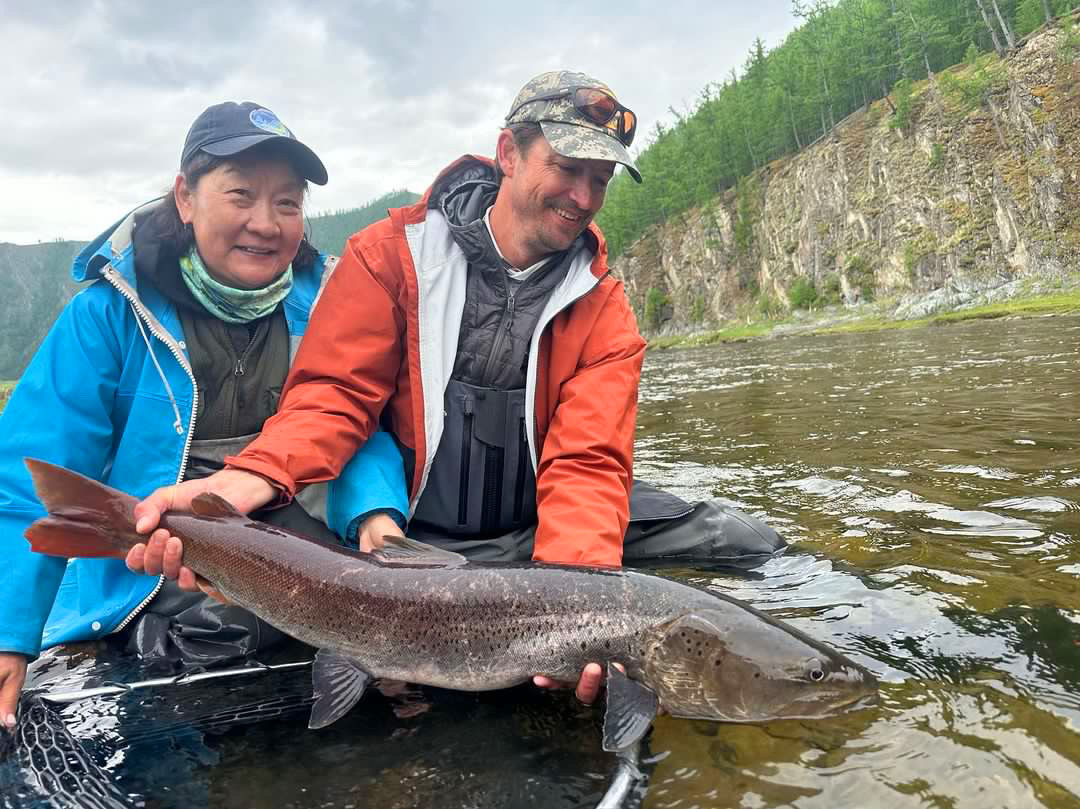
What would you like people outside of Mongolia to understand about the work that you do with Wild Salmon Center—and why it’s important?
Mongolia, as a nation, is very large. Yet we only have 3.3 million people. Right now, most of our rivers are not dammed, but we also have growing pressure to expand our energy production through hydropower.
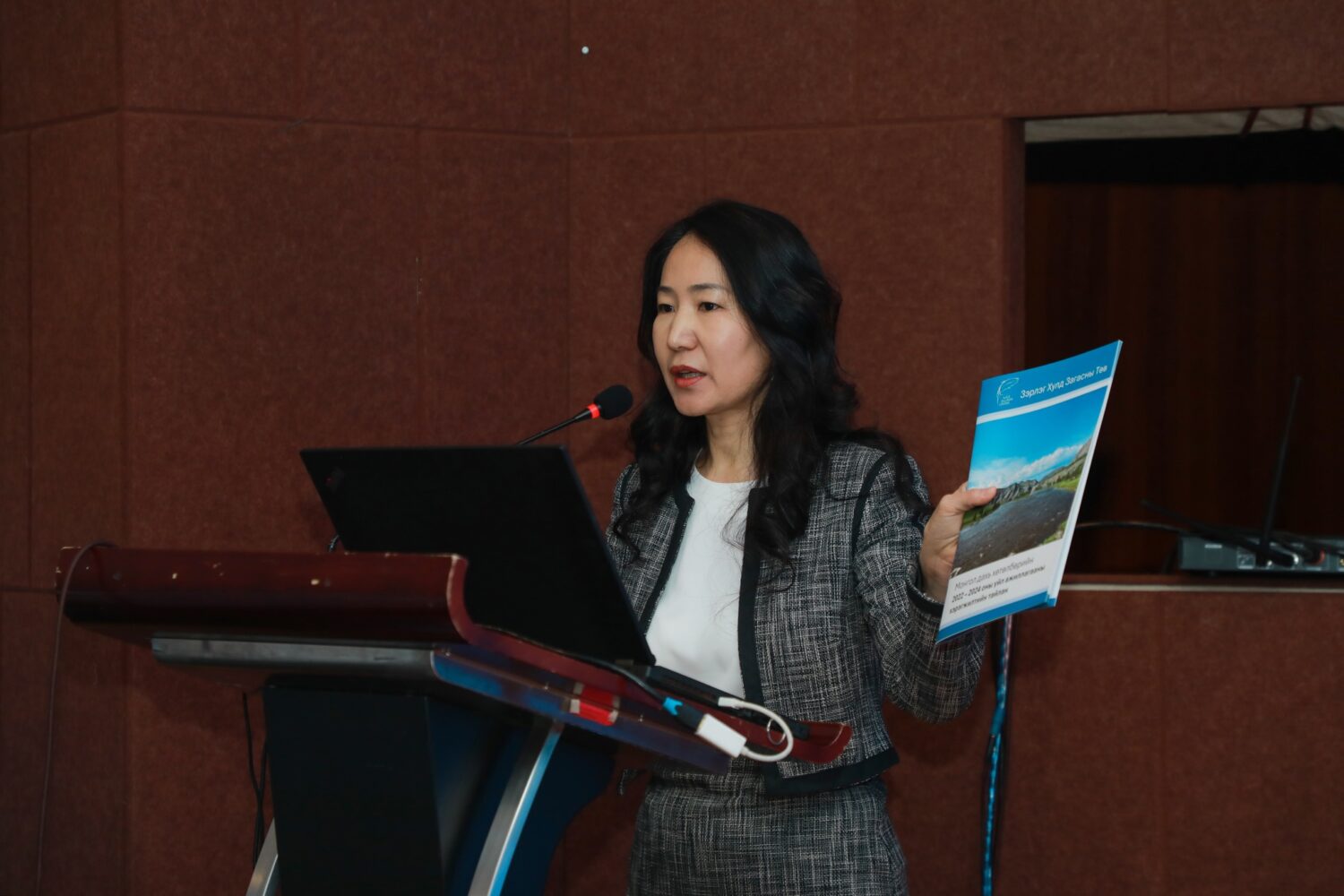
People here are looking to the international community to share the good and the bad in their fish management practices, so that we can make the best decisions. Wild Salmon Center can help bridge some of that work. With Wild Salmon Center support, we recently had our first stakeholder meeting on national fisheries and freshwater ecology in more than 60 years. It was historic. For the first time, we brought together environmentalists, fish biologists, ecology experts, fishers, and even private sector representatives. Everyone was very happy with this meeting. So much feedback came out of this one-day meeting that within that month, we arranged to officially bring these outcomes to the Mongolian Ministry of Environment and Climate Change.
I hope that this momentum can help us with some immediate goals, like training opportunities for rangers who help manage fisheries. That’s one of the new ideas that came from our meeting. But the wider scope is policy reform. We need changes to help protect taimen and other wild fish in Mongolia. Wild Salmon Center can help us develop sound conservation policy, tell our story, exchange knowledge, and focus on stronghold science.
We need changes to help protect taimen and other wild fish in Mongolia. Wild Salmon Center can help us develop sound conservation policy, tell our story, exchange knowledge, and focus on stronghold science.
Wild Salmon Center Senior Mongolia Consultant Dr. Saulyegul Avlyush
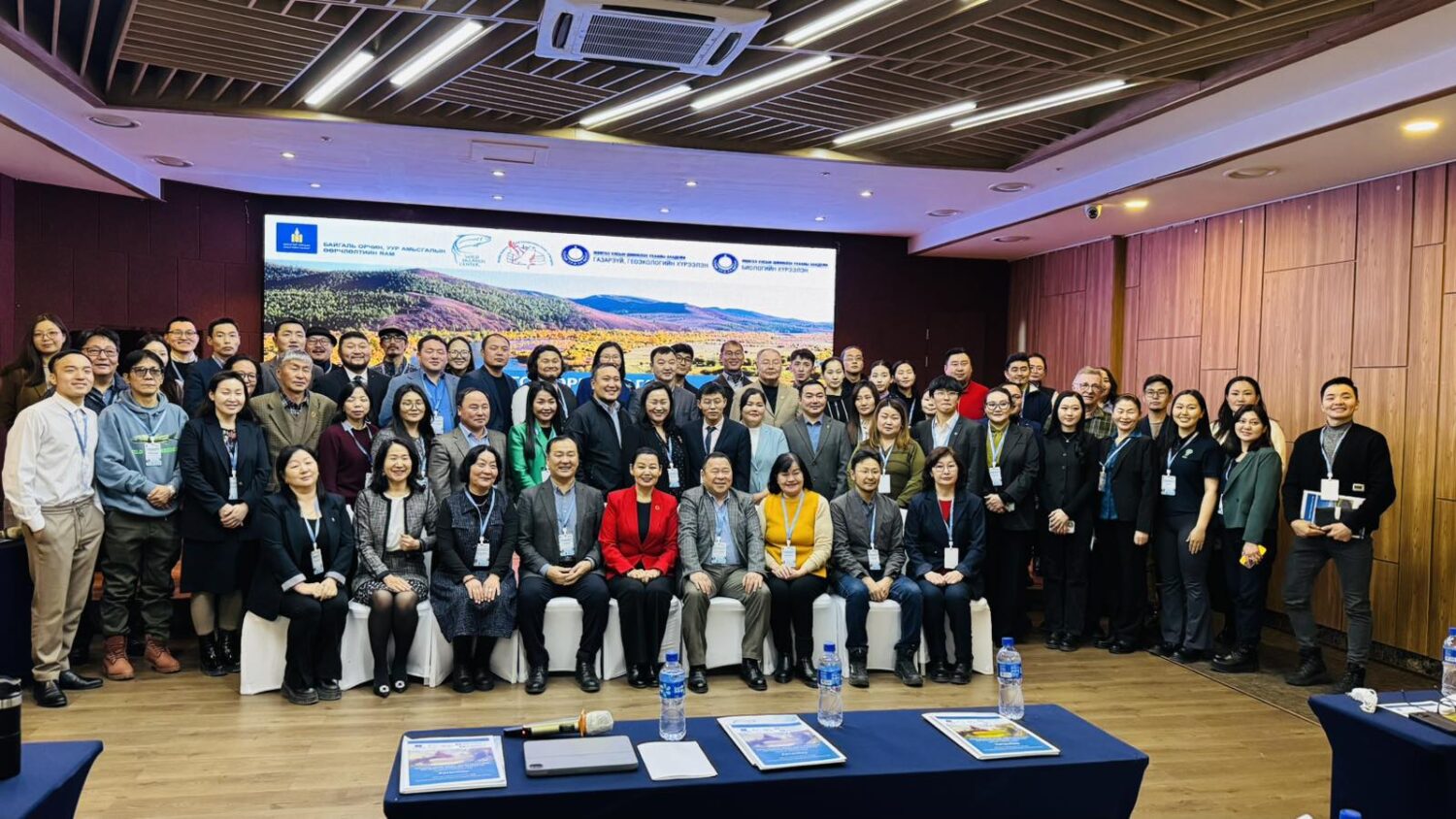
Hero Image
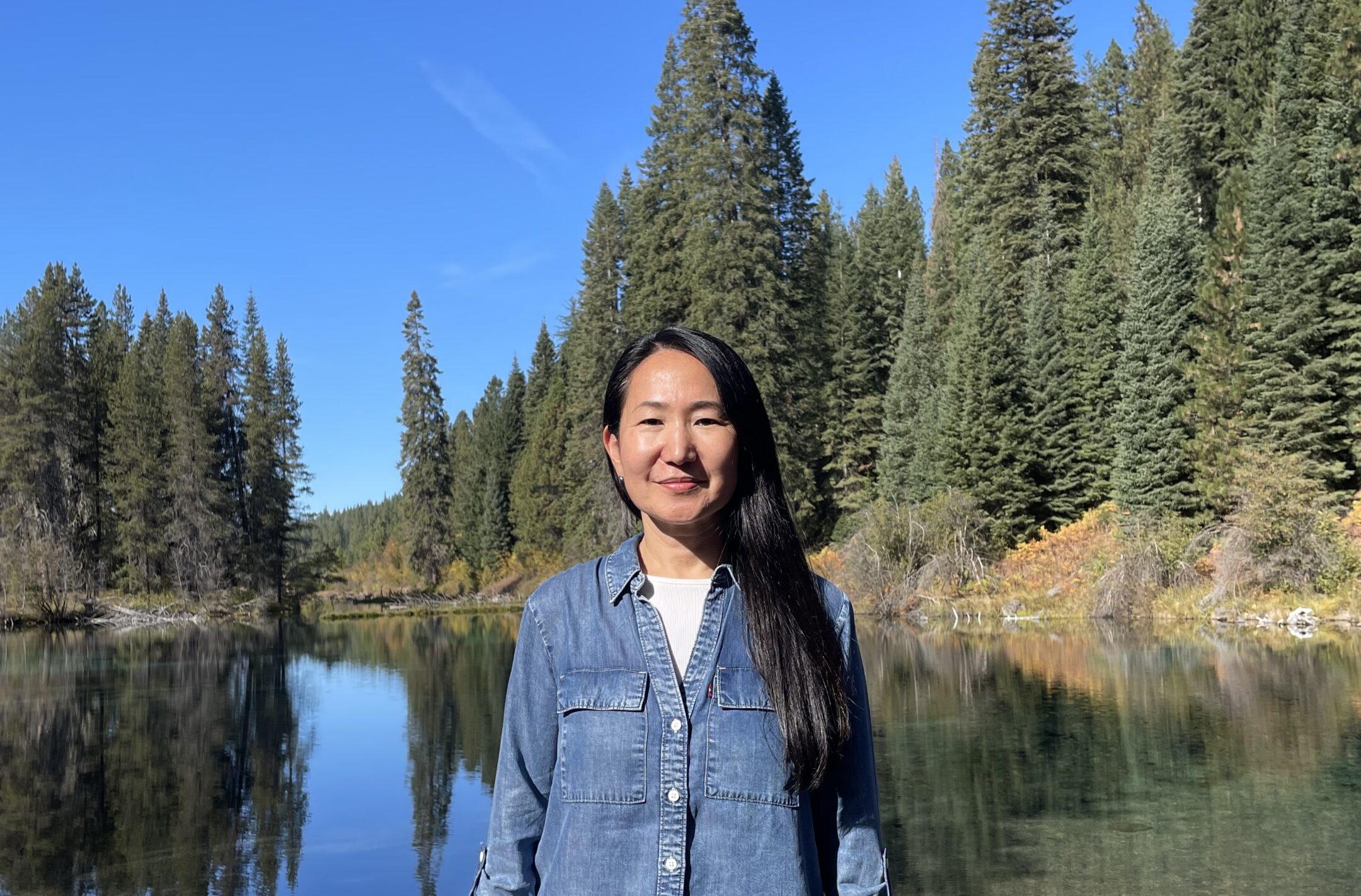
Hero Image (Home Page Section)
